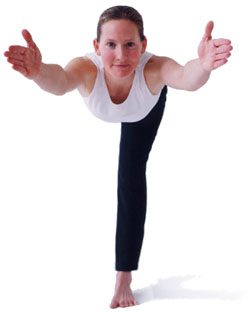Practicing yoga incorrectly can lead to depression, neurological disorders, and even fatal consequences. Individuals who are not fully matured are also not suitable candidates for yoga.
 |
| Achieving the strengths of yoga is not easy (Photo: yogaplace) |
Mr. Nguyen The Truong, the leading yoga expert in Vietnam, states that each individual must consider their goals, physical condition, age, gender, personality, and circumstances to choose the appropriate yoga practice. A method that benefits one person may harm another. Yoga practice should be based on three main factors: breath control, posture training, and mental discipline. All training principles must be adhered to correctly, so individuals need to reflect on themselves rather than follow momentary whims or the desires of others.
Dr. Pham Thuc Hanh from the Traditional Medicine Faculty at Hanoi Medical University notes that even ancient texts on yoga have stated that the practice is ineffective for those who are mundane or lazy. Yoga is not a game to be played in the living room or a passing trend. The practice demands persistence and effort throughout one’s life. Yoga requires high levels of mental discipline, guiding individuals toward goodness, making it unsuitable for those who are easily dissatisfied or overly rigid.
Should children practice yoga? According to Dr. Hanh, a developing child needs to be active, climb, run, and engage in playful and competitive exercises. Therefore, yoga is not suitable for young children and teenagers under 15 years old. Mr. Truong believes that those who are not fully matured should focus on breathing exercises and hygienic eating habits to maintain their health.
Mr. Truong explains that achieving the strengths of yoga is not easy. It requires passing through three stages: health training, self-mastery; adapting to the environment and nurturing one’s true self; harmonizing with the universe. Many people spend their entire lives without completing the first stage. Echoing this sentiment, Dr. Hanh points out that those who attain the ultimate powers of yoga must abandon their everyday lives to pursue spiritual practice, and very few reach such a level. Therefore, yoga should primarily be practiced for health improvement rather than delving deeply into its mysteries.
In yoga, the most crucial element leading to success is breath control and mental training. In posture practice, incorrect movements may only harm the muscles and can be recovered from. However, in breath control and mental training, practicing incorrectly can affect the subconscious, the nervous system, and lead to severe consequences such as depression, obsession, and neurological disorders. If one delves deeply into the subconscious (finding the key to oneself) but cannot escape (not unlocking the door), it could lead to fatal outcomes. Thus, it is vital to choose a qualified teacher when practicing yoga.
According to Dr. Hanh, each person’s body structure and intellect are unique; therefore, postures should be taught specifically to each individual. For example, the shoulder stand pose is not suitable for those with back pain, heart conditions, low blood pressure, or headaches. Thus, practicing yoga without detailed guidance from healthcare or sports professionals can be dangerous.




















































